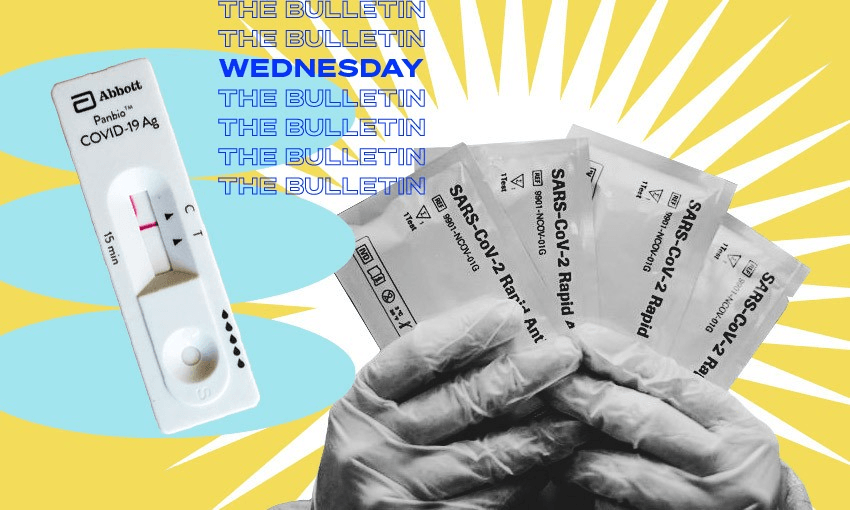Facing a growing omicron surge, the government has ordered tens of millions more rapid antigen tests for delivery soon, Justin Giovannetti writes.
123 million rapid antigen tests (RATs). After weeks of skepticism from the Beehive about the value of rapid tests, the government now says it has ordered enough RATs to get the country through the worst of omicron, the NZ Herald reports. While the tests aren’t as accurate as nasal swabs, they’ll take a heavy burden off limited lab capacity. Following negotiations that went through the weekend, associate health minister Ayesha Verrall announced yesterday that 55 million tests have been secured for delivery over the next eight weeks. Only five million are in the country right now. By June, over 123 million will have arrived, with rapid tests becoming an increasingly regular part of daily life in New Zealand.
Rapid tests will become central to New Zealand’s outbreak strategy. If those orders seem large, Verrall revealed that nine million tests could be used weekly to help control the outbreak at its peak. That’s a conservative figure which assumes rapid tests will be prioritised for a “test to return” system, to get infected critical workers back to their jobs faster. In the later stages of the outbreak, the tests will likely be available for use at home to help people with symptoms find out if they’ve got Covid. The government is already planning on a move to the second stage of the omicron response, as case numbers increase this week.
Can you trust rapid tests? They can return false negatives, but that’s unlikely when someone is infected and has a high viral load, according to Dion O’Neale, the principal investigator with Te Pūnaha Matatini. That’s also when someone is at their most infectious. The rate of false positives is very low and not much of a worry in the middle of a major outbreak.
“Although RATs are not as sensitive as PCR tests, they have the big advantage that they can return a result in minutes rather than days. This is important because it means that it is possible to potentially confirm infections much sooner after exposure, and for people to respond accordingly by self-isolating in order to break any further chains of transmission,” said O’Neale.
There’s room to expand the level of testing further. Businesses have indicated they’d like more access to the tests, especially those in manufacturing where employees can’t work from home. National leader Christopher Luxon said he wants the government to consider expanding use to schools. Either move would require adding tens of millions more tests to the government’s order. According to Stuff, Verrall said no private orders have been impacted by the government’s large new shipments. The director-general of health said last week that orders made by businesses were being shipped to government warehouses instead. It’s unclear whether the minister meant only future orders, or whether those already requisitioned by government will now be forwarded to the businesses that purchased them.
